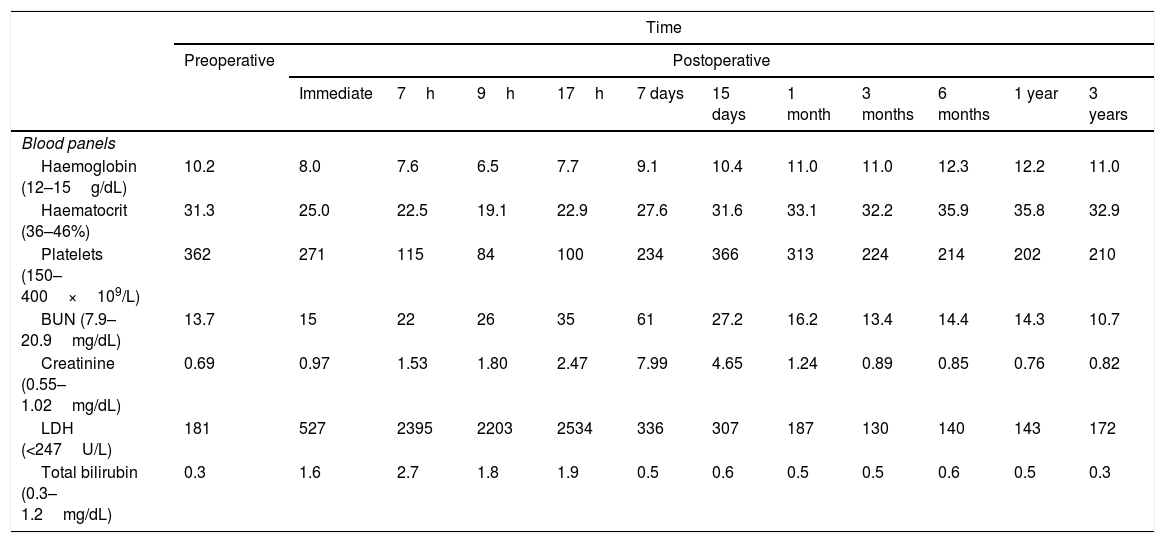Thrombotic thrombocytopenic purpura and atypical haemolytic uremic syndrome (aHUS) are acute, rare, life-threatening thrombotic microangiopathies that require swift management. We report a case of acute microangiopathic haemolytic anaemia (MAHA) presenting in perioperative setting.
Clinical caseAfter hepatic pericystectomy for hydatid cyst, a 46-year-old female developed MAHA, thrombocytopenia and acute renal failure in the immediate postoperative period. “aHUS” was considered and immediate plasma exchange was initiated. Plasma exchange was performed for 2 weeks with remission of renal dysfunction. Further evaluation of genetic mutations and immunological causes for MAHA were sought. Mutations in complement factor H associated with factor H deficiency were identified, which are associated with increased risk of aHUS.
ConclusionMAHA is a rare postoperative condition, requiring rapid differential diagnosis and treatment. Anaesthetists should bear in mind aHUS as a possible cause of MAHA, especially concerning immediate care for these patients.
La púrpura trombocitopénica trombótica y el síndrome urémico hemolítico atípico (SHUa) son microangiopatías trombóticas agudas, infrecuentes y potencialmente fatales que requieren una gestión rápida. Reportamos un caso de anemia hemolítica microangiopática aguda (MAHA) que se presentó en el entorno perioperatorio.
Caso clínicoTras la realización de periquistectomía hepática debida a quiste hidatídico, una mujer de 46 años desarrolló MAHA, trombocitopenia e insuficiencia renal aguda durante el periodo postoperatorio inmediato. Se consideró la posibilidad de SHUa, iniciándose intercambio de plasma inmediato. Se realizó intercambio de plasma durante 2 semanas, con remisión de la disfunción renal. Posteriormente se evaluaron las mutaciones genéticas y las causas inmunológicas de MAHA. Se identificaron mutaciones en el factor H del complemento asociadas a deficiencia del factor H, que están asociadas a un incremento del riesgo de SHUa.
ConclusiónMAHA constituye una situación postoperatoria infrecuente, que requiere un rápido diagnóstico diferencial y tratamiento. Los anestesiólogos deberán considerar el SHUa como causa posible de MAHA, especialmente en lo referente al cuidado inmediato de estos pacientes.








